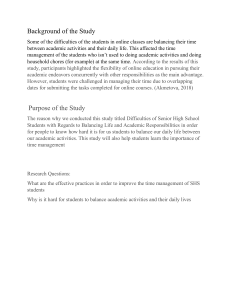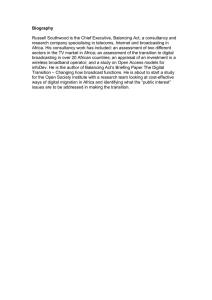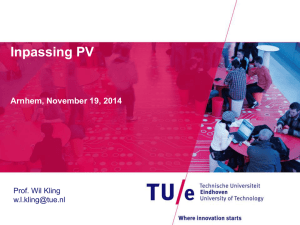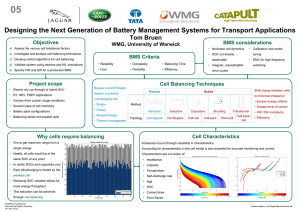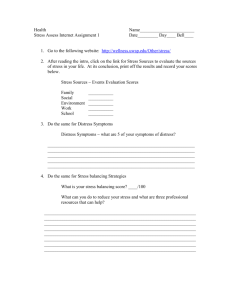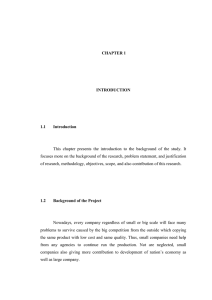Balancing between freedom and responsibility
advertisement
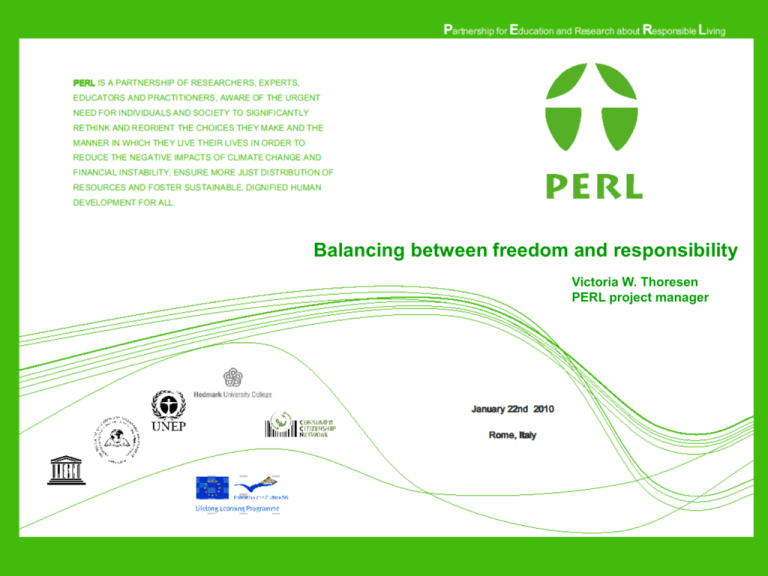
Balancing between freedom and responsibility Victoria W. Thoresen PERL project manager -using the limited resources of the world more carefully *** -choosing between existing paths of development *** contributing to the creation of different approaches, new paradigms and broader definitions of growth and prosperity 1. Reticence to recognize that values and ethics form the foundation for responsible living, for consumer citizenship, for the responses that are needed in face of climate change and social inequity 2. Unwillingness on the part of many researchers, educators and policy makers to focus on the intricate inter-linkages and interrelatedness of climate change and development issues 3. Doubt that creativity coupled with solidarity can provide the future with viable alternatives to the ways we live today 4. Fear that education for sustainable consumption might usurp or undermine education for sustainable development Those with true vision are those who not only see the mountain, but also what is behind it. scientific investigation and an active social learning process “…learning which flows naturally into direct community engagement. An exercise in anticipatory democracy” Life Cycle Analysis Social life cycle assessment Life quality analysis Macro-structural changes (international agreements and standards, national policies, taxes ,laws, controls, etc ) Infra-structural changes (local policies, resources, curricula) Research Collaboration and co-operation (across disciplines, between producers and consumers, within communities) Information Communication Education Identification of fundamental principles Examples of social innovation Collective and individual encouragement create online communication platforms share examples of social innovation develop toolkits for active learning about ESC make videos and other teaching materials promote regional networks and relevant projects prepare and implement think tanks, seminars, workshops and conferences….. Balancing between freedom and responsibility Freedom to express oneself (where and when hindrances no longer exist) Freedom of choice (when there are things to choose from) Freedom from social and economic injustice Balancing between freedom and responsibility Responsibility to others, Responsibility towards Nature, Responsibility for the generations of the future Mahatma Gandhi preached about seven “social sins”: 1. 2. 3. 4. 5. 6. 7. Politics without principles Commerce without morality Wealth without work Education without character Science without humanity Pleasure without conscience Worship without sacrifice Moving from the freedom of indifference to the responsibility of involvement Thank you!
